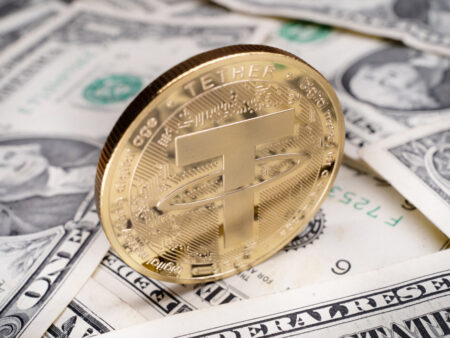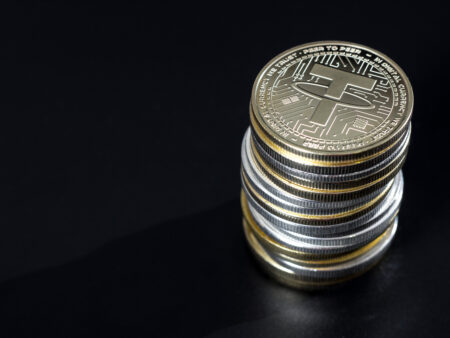Recent remarks by Ripple CEO Brad Garlinghouse have sparked a heated debate in the cryptocurrency community. Garlinghouse suggested that the U.S. government is actively going after Tether (USDT), stating his perspective was quite clear on the matter. This has led to significant backlash from industry leaders, including sharp words from Tether’s top brass.
Tether’s Chief Technical Officer, Paolo Ardoino, didn’t take kindly to Garlinghouse’s words, branding him an “uninformed CEO.” Furthermore, former Blockstream executive Samson Mow added fuel to the fire by advising Garlinghouse to “leave the attacking to the XRP bots,” implying that the Ripple CEO’s intention to attack Tether should be left to automated social media accounts known for promoting Ripple’s cryptocurrency.
The controversy hinges on Mow’s assertion that Garlinghouse’s comments were an attempt to inject fear, uncertainty, and doubt (FUD) surrounding Tether, which can perhaps be seen as a competitor to Ripple’s aspirations with the XRP token and its forthcoming stablecoin.
Garlinghouse has defended his position amidst the controversy by clarifying that his words were not intended as an attack on Tether, underlining the importance of Tether in the cryptocurrency ecosystem. Despite the criticism, Tether has stayed its course, stressing its collaboration with law enforcement and regulatory bodies, which includes engagement with the USA Secret Service and the Federal Bureau of Investigation, to ensure compliance and transparency.
On Ripple’s side of the fence, plans to launch a stablecoin dubbed RLUSD were announced. The company’s Chief Technology Officer conveyed confidence in the market, which is valued at approximately $150 billion, and suggested that there is ample space for competition.
Despite attempts to clarify his intentions, Garlinghouse’s comments have cast a shadow of doubt over Tether and drawn criticism toward Ripple. This comes at a time when Ripple is embroiled in its own legal challenges, with some market spectators considering whether targeting Tether rhetorically could be a defensive move in the broader regulatory landscape.
Tether, while under scrutiny, has continued to affirm its dedication to working hand in hand with authorities, signaling its commitment to maintain the integrity and trust required of a leading stablecoin operator. As the market for digital assets grows, with stablecoins playing an increasingly vital role, the conversations between industry leaders like Garlinghouse and Ardoino are emblematic of the groundbreaking and, at times, controversial developments in this dynamic finance sector.









